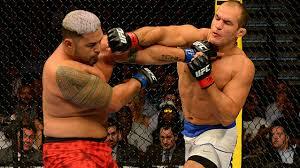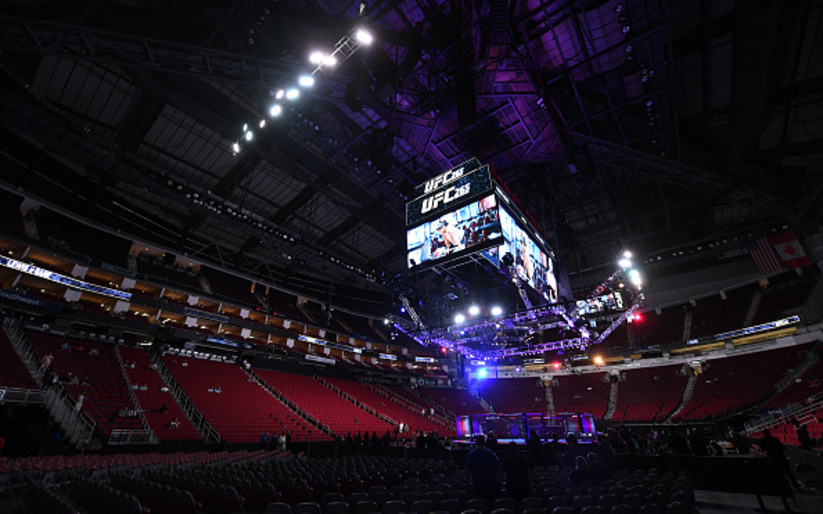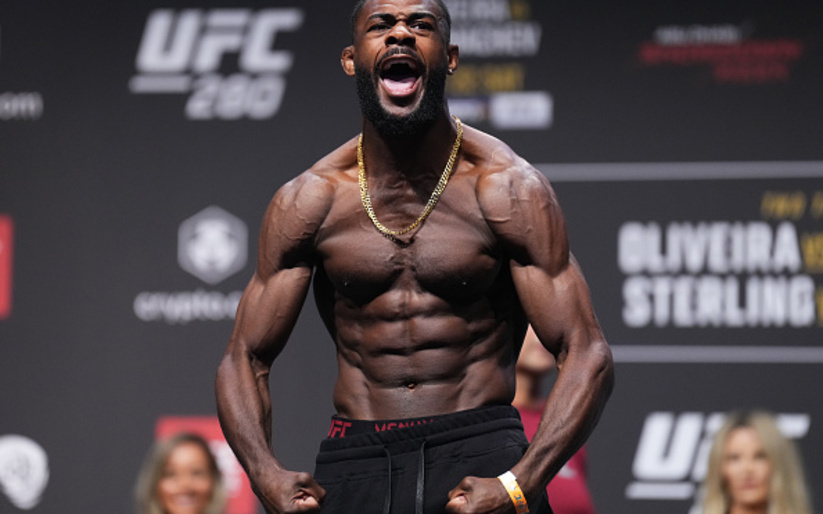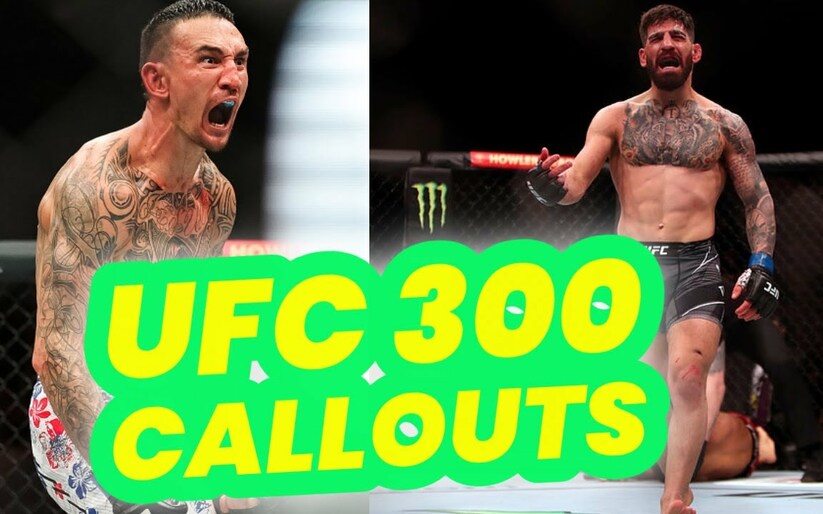UFC 160 has come and gone. While there wasn’t the controversy we saw earlier this month from UFC on FX 8 there were some questions that came out of the event.
Some of those questions were answered, as we found out the new number one contender in the UFC’s lightweight division is now Canadian T.J. Grant. We also realized that heavyweight champion Cain Velasquez and former champion Junior dos Santos are leaps above the rest of the heavyweight division.
With plenty of action, UFC 160 served as a fun filled event not only for the locals in Vegas, but also for the PPV fans on their couches.
As always, following an event MMASucka presents our three questions following UFC 160.
Jeremy’s Question: On numerous occasions throughout the UFC 160 fight card there were instances where the referee could have stood two fighters up. The one that stood out for me the most while watching at the bar was Mike Pyle vs. Rick Story. For the better part of the second round, Story sat in Pyle’s guard doing absolutely nothing with referee Steve Mazzagatti standing there. The question at hand is, when should a referee step in to stand the fighters up?
Henry’s Answer: The referee’s job is to stand the fighters up when there is inactivity. By that, I mean when there are no advancements in position or offense from both fighters. For example, if the fighter on top position has not tried to advance his/her position or thrown a punch/knee or attempted a submission in about 25-30 seconds, it’s time to stand them up. On the flip side, if the fighter on the bottom position is throwing elbows and attempting submissions while the fighter in top position is stalling, then the referee needs to give the fighter on the bottom his time to work. If he/she is unsuccessful with their offense from the bottom position and decides to stop working while the fighter in top position is still stalling, then the referee should stand them up. However, at the end of the day, the fighter on top position has the dominant position and it is his/her opportunity to create the offense. If they are not doing anything with it, then the referee needs to reset the positions and stand them up.
I don’t think this needs to be an official rule but I’d like to see the referees implement something like a “shot clock” in basketball. In basketball, the offensive team must have the ball hit the basket within 24 seconds. In MMA, there needs to be some output of significant offense in about 25-30 seconds and I don’t mean a fist tap on the forehead or a weak punch to the body type of offense. If there is no offense from either side for about 15 seconds, then give them a verbal warning and after about 10-15 seconds of more inactivity, then stand them up.
Justin’s Question: With his defeat at the hands of Junior dos Santos, what do you do with Mark Hunt? Do you keep him on the main cards, or do you start pushing him down and into a gatekeeper role?
Jeremy’s Answer: The man is 4-1 in his last five fights, with his only defeat coming to a former champion. There is no way you drop him down to a preliminary card when he is such a fan favorite. Any time “The Super Samoan” is on a PPV portion of the card you know it is going to get some serious buys. The question isn’t so much where you put him on the card, but who you match him up with next. He is obviously not in that upper echelon as we saw from his fight last night, but he could still get someone ranked from 10-15. I personally would like to see him square off against a guy like to see Hunt step right back in there with a big name like the loser of Roy Nelson vs. Stipe Miocic. At UFC 160 it was just the second time Hunt had been knocked out in his MMA career, so we know he can take a lickin’ and keep on tickin’.
Henry’s Question: At the post fight press conference, Dana revealed that JDS was close to receiving the KO of the Night award in addition to his Fight of the Night award. However, Mike Tyson, who was sitting ringside with Dana White, convinced him that he should give it to TJ Grant instead. Since JDS makes pretty good money per fight from his contract and sponsors and he was already awarded a fight bonus, I wouldn’t imagine he be too pissed off about missing out on another 50k. However, if this had happened to a fighter on the prelim card, then maybe they may feel a little robbed. The UFC has tried fan voting for Fight of the Night award in the past with mixed results. Does the UFC need a more consistent method of deciding fight bonuses?
Justin’s Answer: Yes and no. I don’t have any issues with “Iron” Mike pressuring Dana White to give the KO of the Night bonus to an equally deserving but lesser paid fighter. In all honesty, I think it ended up being the right choice. However, I do believe that a fighter should only get one bonus per night. By limiting the amount of “Of the Night” bonuses a fighter can get on a card, it creates more of an opportunity for fighters lower on the card to earn the much-needed extra money. Guys like Wanderlei Silva and Junior dos Santos are making enough declared money that they don’t need another $65,000 payout on top of any one “Of the Night” bonus they may receive, and that money could go a long way to helping a fighter like TJ Grant perhaps take the next training steps they need to get to the next level and become stars.



